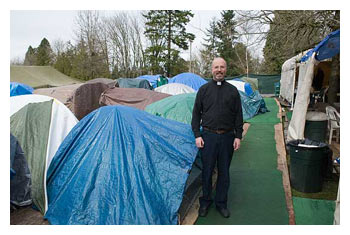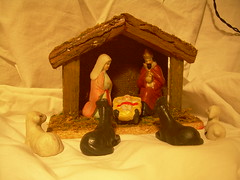This interview, by Jeff Dietrich and Susan Pollack, was originally published in the December 1971 Catholic Agitator. You may want to compare this with the portrait drawn of her in Cardinal O’Connor’s application for her sainthood.
CATHOLIC AGITATOR: I’d like first to ask you, are you an anarchist? And what does that mean to you in terms of your daily action?
DOROTHY DAY: Do you want me to go back into history? When I came from college, I was a socialist. I had joined the socialist party in Urbana Illinois and I wasn’t much thrilled by it. I joined because I had read Jack London—his essays, The Iron Heel, and his description of the London slums. I also read Upton Sinclair’s The Jungle. All of these made a deep impression on me. So when I was sixteen years old and in my first year of college, I joined the Socialist Party. But I found most of them “petty bourgeois.” You know the kind. They were good people, butchers and bakers and candlestick makers—mostly of German descent—very settled family people. And it was very theoretical. It had no religious connotations, none of the religious enthusiasm for the poor that you’ve got shining through a great deal of radical literature.
Then there was the IWW moving in, which was the typically American movement. Eugene Debs was a man of Alsace-Lorraine background. A religious man, he received his inspiration from reading Victor Hugo’s Les Miserables. That started him off because he could have been a well-to-do bourgeois, comfortable man. But, here you have this whole American movement. The IWW has this motto: “An injury to one is an injury to all.” That appealed to me tremendously because I felt that we were all one body. I had read scripture, but I don’t think I’d ever really recognized that teaching of the “Mystical Body”—that were are all one body, we are all one.
Continue reading “Dorothy Holds Forth”



 Ah, another Spring day in Worcester. The kids are out of school this week. Yesterday morning a bunch of men and little kids were playing baseball in Austin Street, pausing the game when a car approached.
Ah, another Spring day in Worcester. The kids are out of school this week. Yesterday morning a bunch of men and little kids were playing baseball in Austin Street, pausing the game when a car approached.